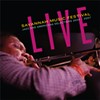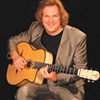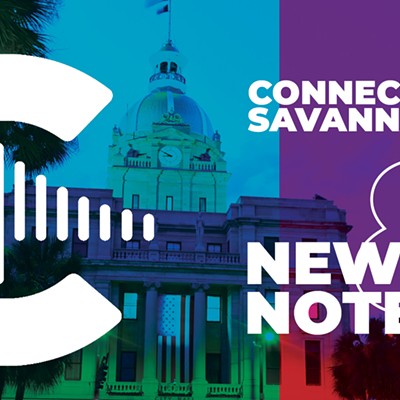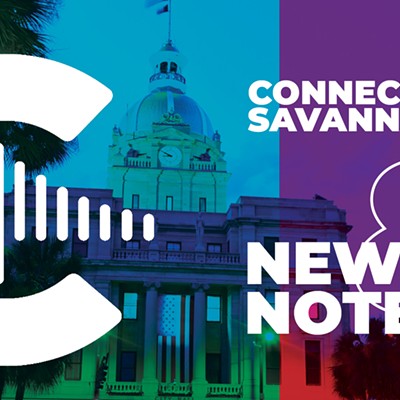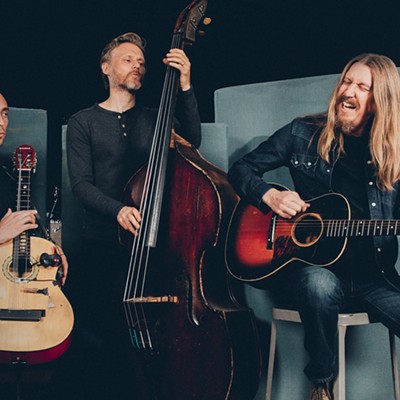HOW MANY TIMES HAVE YOU attended an outstanding live concert event only to wish in vain that you could somehow obtain a high-quality document of the show to listen to time and time again?
Although there have always been hi-fi enthusiasts, amateur archivists, Überfans and even enterprising black-market businesspeople who sometimes went to great lengths to surreptitiously record shows for posterity (or, in the case of commercial bootleggers, a quick and easy profit), the quality of most of those recordings was usually decent at best.
Most were captured ambiently by audience members, meaning that even when using specialized equipment, crowd noise or excess reverberations in the room would often compete with the magic the musicians made on stage. For decades now, collectors of rare audio usually searched most ardently for so-called “board tapes”, mono or stereo 2-track recordings capturing not the amplified sound as heard in the hall, but rather, some form of direct feed taken from the mixer (or soundboard) itself.
Recordings made in this manner rarely suffer from extensive crowd chatter or reflective echoes (which can cause phase problems that damage the integrity of the music), but as these “mixes” are rarely intended to be listened to without taking the acoustics of a given room into account, the instrumentation and/or vocals can at times seem wildly unbalanced. Those accustomed only to hearing carefully mixed albums or professionally-run concerts would likely find the results skewed and peculiar at best and unlistenable at worst.
Ardent completists will surely suffer through the most ungodly rackets to hear every note or utterance of their favorite artists, but the average listener likes things neat, tidy and pleasing to the ear.
So, for decades now, the vast majority of live concert recordings which see officially sanctioned release by serious artists (and their respective labels) are those recorded with such an eventual release in mind. Those shows are “multi-tracked”, meaning that each individual instrument or vocalist is essentially recorded separately from the rest. Then, days, weeks, months or even years after the event, talented sound engineers in studio settings can carefully blend these tracks into a unified and pleasingly balanced listening experience.
In recent years, with the music biz in decline and interest in live concerts at a relative high, many established rock and pop acts with both a sense of vision and loyal, cult followings —such as Pearl Jam and The Pixies— have routinely multi-tracked entire tours, subsequently offering professionally mixed CD sets of each show as collectible, limited-edition souvenirs.
Now, at long last, the Savannah Music Festival (another equally visionary endeavor) —which for the past five years has been methodically multi-tracking approximately half of the shows at each of their annual, two-week-plus showcases of fine art and roots music from around the world— is testing the same waters.
They’ve partnered with FestivaLink.net, an internet-based firm which specializes in marketing high-quality recordings from a variety of music fests around the world. These recordings are carefully tracked, mixed and mastered, and then offered as digital downloads in a variety of formats — from the ever-popular MP3 to so-called “lossless” files, which are prized by audiophiles for their improved clarity, but shunned by most for their unwieldy size.
SMF Executive and Artistic Director Rob Gibson says making standout performances from the festival’s archives has always been a goal, but it has taken many years for both technological innovations and interest in this event to align.
“We’ve been documenting as many of our productions as possible for years,” he explains. “Many of our jazz and classical concerts tend to be wholly unique productions, so we try to record them. For example, we’ve documented everything by Marcus Roberts since I arrived (at the SMF) because I believe he’s one of the most extraordinary musicians in our time. Our aim (has always been) to work in conjunction with artists and eventually release some of their recordings to the public.”
While it’s a little-known fact that many of the classical events staged by the SMF over the past five years have later been broadcast on NPR’s Performance Today program (a “great relationship” which Gibson says will continue with the 2008 festival), the vast majority of shows in their vaults have never been heard by anyone.
That’s partially because there has never been an easy way to disseminate the material, and partially because the artists themselves and/or their respective labels ultimately retain control over what recordings —if any— are ever marketed commercially by the SMF.
“We have only contracted with the artists for archival and non-commercial use only,” explains Gibson, who also notes that the festival has recently entered into an agreement with XM satellite radio to air selected concerts from the SMF archives.
“For this project and the upcoming XM broadcasts (on XM Channel 110, The Classics), we have had to go back to participating artists for their blessing. FestivaLink has been taking care of licensing requests, issuing new contracts, and they will handle publishing and royalty settlements. It’s always our goal that the artists share in the control of their music.”
“Everyone who appears on these new compilations were given the opportunity to provide notes on the material we selected, and on the mixes of each track. We want them to be proud enough to sell them at their concerts, too.”
Gibson notes that up till now, FestivaLink.net has focused more on distributing live sets of contemporary acoustic music and Americana, and complementing that niche is at least partially responsible for the roots-heavy selection of artists and tunes contained on these initial offerings from the SMF vaults (including Sam Bush, David Grisman, John Jorgenson, and Jerry Douglas). Yet he sees this projected series of anthologies as a way for the burgeoning company to branch out a bit into the jazz, blues and world music genres.
“This arrangement is an experiment for both of us,” he offers. “It will no doubt introduce some new artists into their catalog. FestivaLink.net caters to the live music lover, and that’s a connection which is shared by the Savannah Music Festival.”
FestivaLink.net’s General Manager Ann Blonston shares Gibson’s enthusiasm for their cooperative venture.
“These shows were professionally recorded and mixed and every tune has the artists’ blessing. We’re proud to be part of the Savannah Music Fest’s continuing mission to document the best music America, and the world, has to offer.”
Blonston says that even though some of the artists featured on this first pair of SMF anthologies fall slightly outside of the type of music her company has distributed to date, there is a commonality shared between her company’s roster of talent and that in the SMF’s ongoing archives.
“We work in genres where careers span a lifetime,” she adds. “Artists in these genres can still entertain into their eighties. We aspire to the equivalent longevity in the digital world, to help artists keep their music in front of new listeners. It’s our goal to keep those long careers vital.”
She also relishes a long and fruitful relationship with the festival, for, as she puts it, “The Savannah Music Festival archive is full of remarkable performances.”
Gibson stresses that those who purchase either a physical CD from the limited-edition 1,000 copy run of Volume One or a custom-made CD-R of Volume Two (both of which will also be available for convenient digital download) can be assured that despite the fact that the recording process used theoretically allows for extensive post-production studio trickery (common on most so-called “live albums” these days), what they’ll hear through their headphones or speakers is exactly what the crowd heard on the night of the show.
“None of these tracks have been doctored at all, beyond basic edits and equalization. This is not Milli Vanilli or MTV! No lip-synching, no overdubs, no nonsense. These musicians, and particularly these performances, don’t need it.”
He credits the festival’s two location recording engineers with capturing pristine quality recordings of “a couple of hundred hours’ worth” of all manner of impressive shows over the past several years.
“To date, we have relied on two terrific guys, Rich Mays and Kevin Rose, to record our concerts,” he says. “They have different equipment, different setups and different philosophies.”
However, it seems that both men, who each record certain types of music for the festival (Mays the classical and the jazz, and Rose the blues and Americana), have very similar outlooks on the SMF and their role in helping to document the magical moments it routinely presents.
“Many of the shows I’ve recorded for them are one-of-a-kind events put together by the festival,” says Rose. “And I consider myself fortunate to have recorded them.”
Mays adds: “I can honestly say that in the realm of jazz and chamber music no festival eclipses the Savannah Music Fest. I can’t imagine any jazz lovers would be disappointed with this disc.” 
Live From Savannah Music Festival: Jazz and Americana Selections 2004 -2007 should be available in the next few weeks.
(For an extended version of this piece, go to www.connectsavannah.com.)
Top: Jerry Douglas;Middle: CD cover;Botom: John Jorgenson

